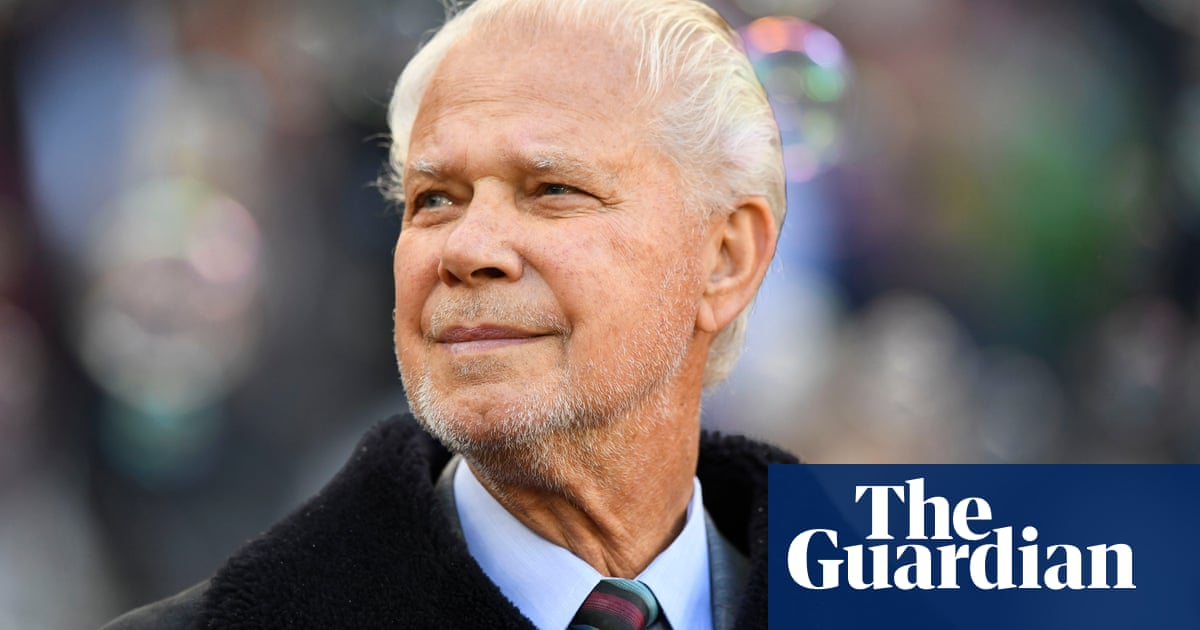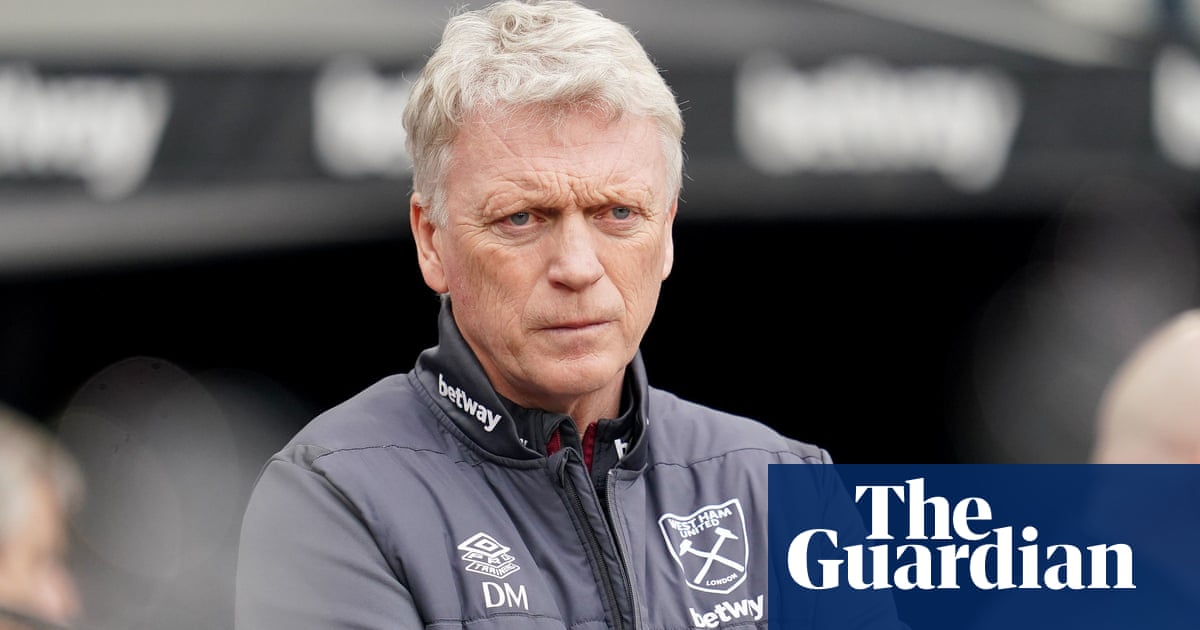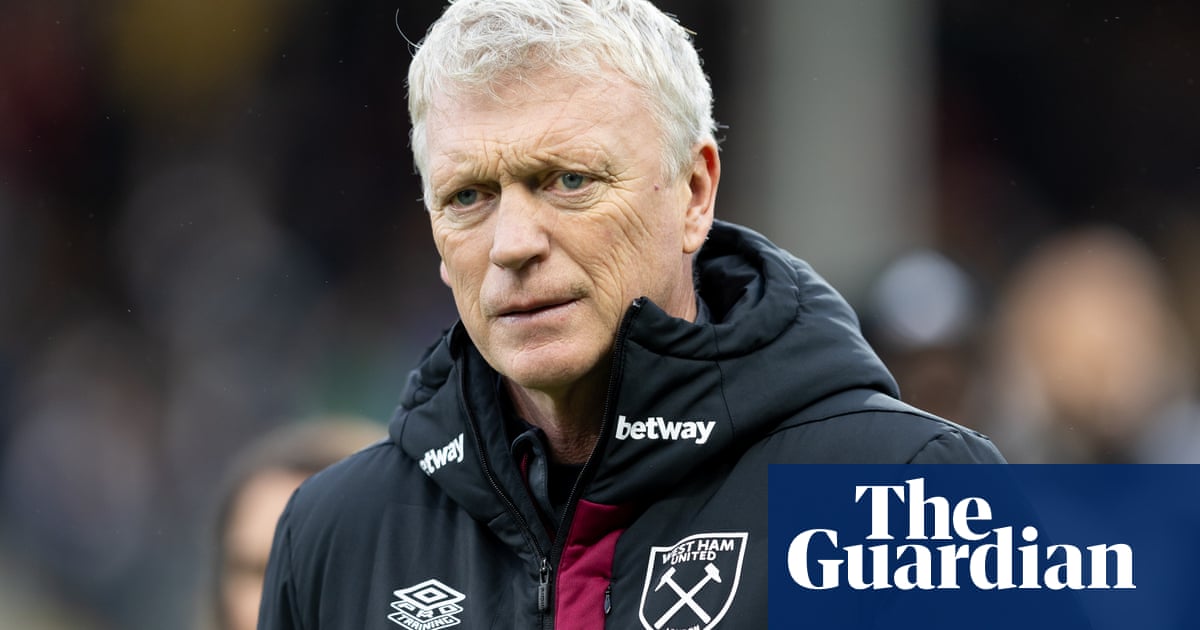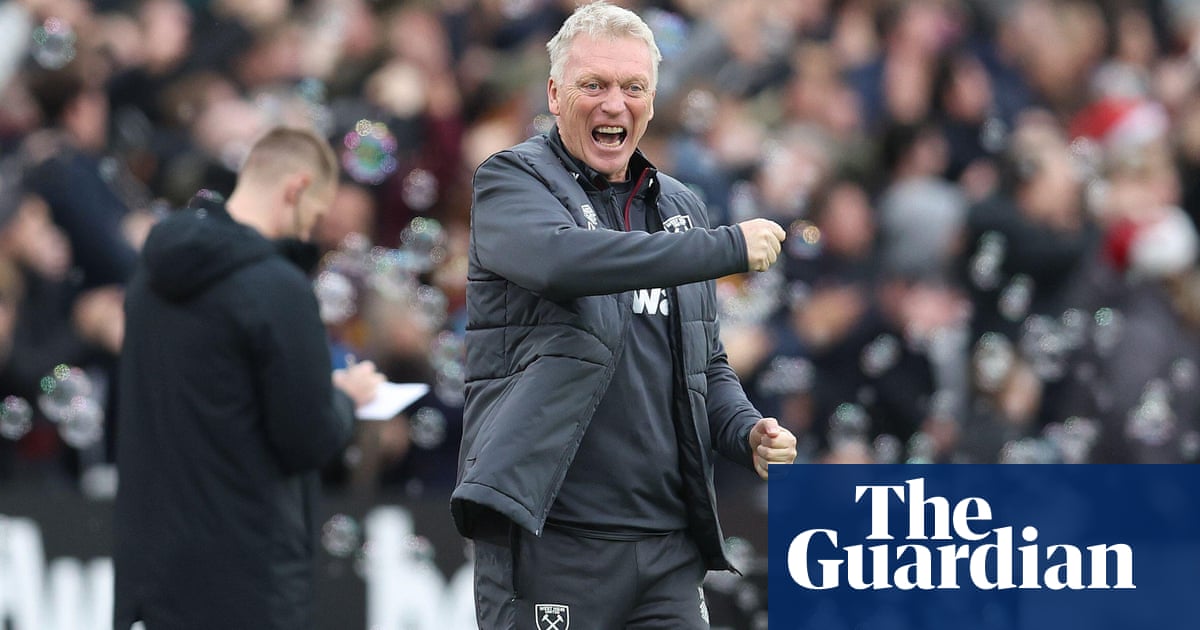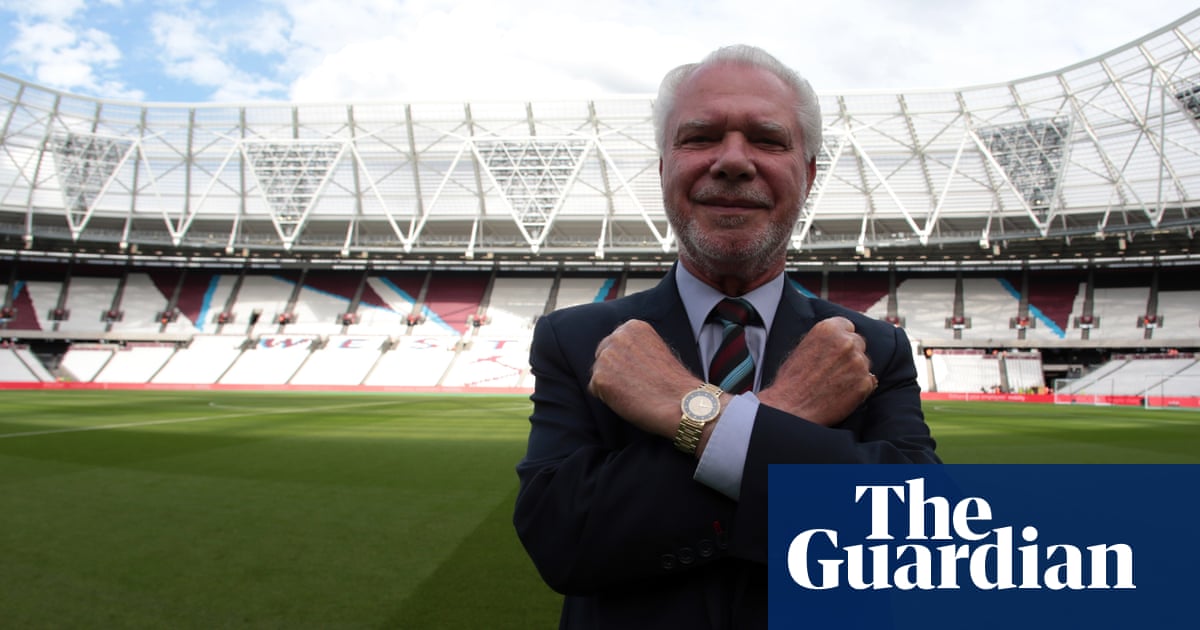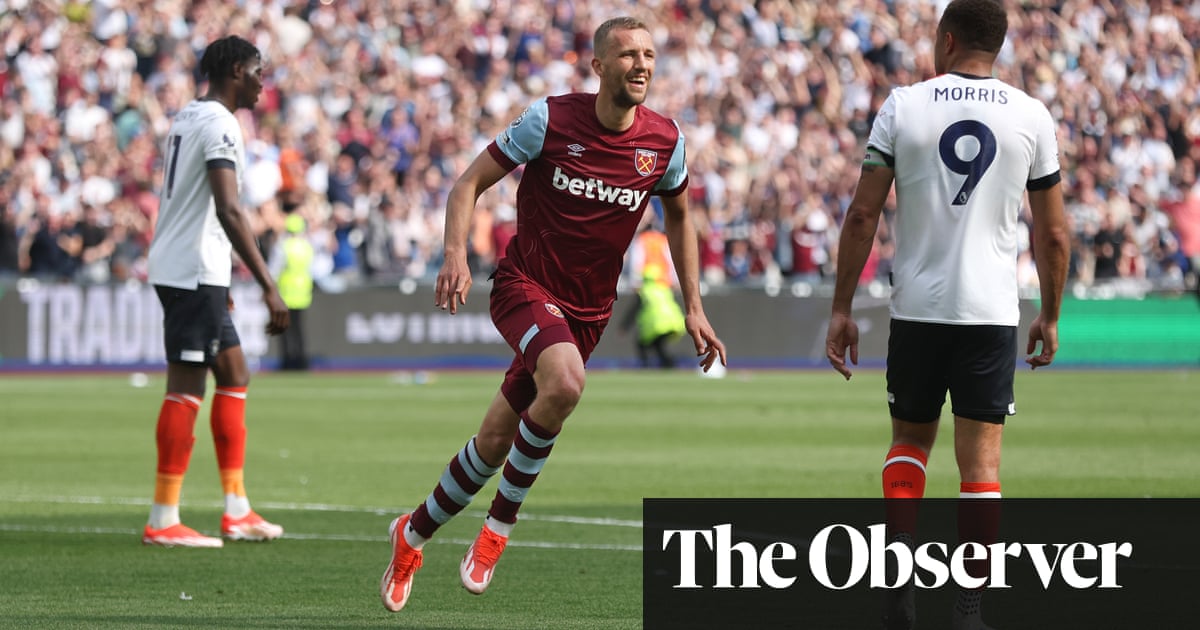
Individually, none of West Ham’s first three Premier League games of the season have been that bad. They were extremely unfortunate to lose at Nottingham Forest, there’s little shame in losing to Manchester City, and Brighton can be awkward opponents for any side, but especially West Ham, who now haven’t beaten them in 11 attempts. All together, though, these three defeats with no goals scored have West Ham bottom of the table. Sunday’s meeting with a struggling Aston Villa comes with a distinct sense of pressure.
There were boos at full time at the London Stadium last Sunday. They were probably born of frustration at that day’s performance rather than at anything more general, but West Ham have now lost eight of their last 10 games, the only win coming against a doomed Norwich.
Context is important: there was fatigue towards the end of last season and the focus clearly and understandably switched to the Europa League. Nobody could seriously question the job David Moyes has done since returning to the club.
But what if West Ham lose at Villa? They have Tottenham, Chelsea and Newcastle in the three games after that, all of which could be lost without doing very much wrong. By next month’s international break this could feel like a relegation battle, one that could only be hindered by the Europa Conference League. A group-stage slog against FCSB of Romania wouldn’t have quite the allure of those grand nights against Sevilla and Lyon in the Europa League last season.
Perhaps that is to say nothing more than that the path for clubs of West Ham’s stature is difficult. Improving on sixth or seventh is almost impossible; while survival is never guaranteed. Boasts about the competitiveness of the Premier League often feel largely empty (all hail our overlords for we are not Germany, yet) but its mid-ranks are a volatile mix of the big-spending and the innovative, fading giants and battling over-achievers. No team outside the big six can ever feel entirely secure.
For managers the line between genius and fraud is perilously slender. After the good years at Preston and Everton, Moyes’s reputation took a major hit in his disappointing spells at Manchester United, Sunderland and Real Sociedad. The sense then was that the game had moved on and left him behind.
His response after leaving Sociedad was to reassess his methods, prioritising communication, and to reacquaint himself with best practice at other clubs. And for a time it worked. He saved West Ham from relegation before being harshly replaced, returned and led them to the heights; no manager has ever achieved three successive top-seven finishes with West Ham.
Moyes’s post-Everton career began to be reassessed. Succeeding Sir Alex Ferguson was always going to be fraught. Sociedad are abroad. Sunderland were helpless.
Again, no individual instance is damning, but perhaps the pattern is. Sunderland may have been chaotic but they had eight managers after winning promotion in 2007 who did not lead them to relegation. And Moyes replaced Sam Allardyce when he took the England job; he did not walk into a crisis but inherited a club in their healthiest position since the Peter Reid era.
Signings can be questioned – declining to make Yann M’Vila’s loan deal permanent while splashing a club record £13.6m on Didier Ndong remains inexplicable, although still less incomprehensible than buying Papy Djilobodji. The immediate negativity of tone seemed unhelpful: Sunderland’s final home game under Allardyce was a rampant 3-0 win over Everton; their second home game under Moyes was a craven 3-1 defeat against the same opposition.
This season, perhaps, there are troubling echoes. West Ham have prospered with obviously Moyesian signings, grafters with English experience augmented by a pair of hard-working Czechs. This summer, though, there has been a shift to the exotic: three players brought in from the French league plus Gianluca Scamacca from Sassuolo. Even Emerson Palmieri, a necessary upgrade on Aaron Cresswell, has started only 20 league games for Chelsea while Maxwel Cornet had been at Burnley just a season. Thilo Kehrer, signed from Paris Saint-Germain, had a nightmarish debut against Brighton. These are not players who will necessarily be enthused by the Moyesian grind, and they are perhaps not players he instinctively trusts.
Add that to the retirement of Mark Noble, who did more than anybody to maintain the character of the club, and there has perhaps been a loss of identity and direction. After the Brighton game, Moyes explicitly linked Noble’s absence with the failure of certain players to take responsibility. “He was important around the club,” he said. “So small things can make a big difference sometimes.”
The tone, similarly, has been downbeat. Against Manchester City, West Ham seemed almost acquiescent. Last season at the London Stadium, they drew against the champions and beat Liverpool, Chelsea and Tottenham, but there was none of the brio of those occasions this time round. Perhaps there is an element of weariness, particularly with Declan Rice, Jarrod Bowen, Tomas Soucek and Vladimir Coufal having been flogged through extended Nations League campaigns in June.
Perhaps facing a player as adept at hitting space behind the defensive line as Erling Haaland encouraged Moyes to sit his side deep but, as in so many games at Sunderland, it felt from the start like damage limitation – a contrast to the way West Ham unsettled City in the penultimate game of last season.
After the London Stadium’s unexpected transformation into a vibrant stage, particularly on those European nights, it has become once again a pit of grumbles this campaign with some fans boycotting food and beer outlets over the prices and the club threatening to sue the stadium owners.
It may be that this is simply the pattern of Everton repeated: Moyesian football can take a limited squad so far, but there is a ceiling – and when results go awry, there is a category of player who will chafe against a tactical approach which, when it is not producing results, can feel restrictive perhaps even to the point of being counterproductive.
In the modern Premier League there is simply not the margin for error Moyes experienced in his years at Everton. Mid-table these days is a brutally tough world.




